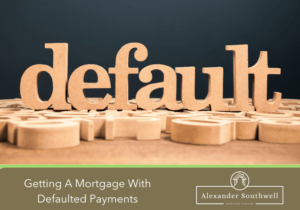Different Types Of Mortgages Explained
Understanding the different types of mortgages
Find out what different type of mortgage you want to put in place. Read the pros and cons of various types of mortgage types. In this guide we discuss the types of mortgages available.
Don’t just focus on the interest rates and fees you’ll be charged. Despite all serving the same purpose (i.e. lending you money to buy property at a given rate of interest that you’ll need to pay back over time) there are lots of different mortgage types.
Fixed Rate Mortgages
Fixed rate mortgage mortgage deals guarantee interest rate will stay the same for a set amount of time.
This makes fixed rate mortgages the most popular across the market.
This can provide peace of mind as your monthly mortgage payments are the same every month. The downside is that if interest rates fall, you will be locked into your fixed rate deal.
After the fixed period finishes you will normally move onto your lender’s Standard Variable Rate.
If you want to pay off your mortgage and switch to a new deal before it comes to an end, there will usually be Early Repayment Charges (ERC’s) to pay.
This type of mortgage is by far the most popular type of product. It allows clients to pay off the mortgage over the mortgage term without any risk of their monthly payments changing.
ADVANTAGES OF FIXED RATE MORTGAGES:
• You know the exact amount you’ll need to pay & the mortgage rate each month, which makes budgeting easier.
• Your monthly payment will stay the same during the fixed period, even if other interest rates increase.
DISADVANTAGES OF FIXED RATE MORTGAGES:
• Your monthly payment will stay the same during the fixed period, even if other interest rates decrease.
• If you want to repay your loan early, there could be an early repayment charge.
Check out our 2 Year Fixed Rate VS 5 Year Fixed rate page to give you a best understanding of what products to take.
Variable Rate Mortgages
Variable rate mortgages come in various forms.
If you have a variable mortgage, this means that your monthly payments can go up or down over time.
Most lenders will have Standard Variable Rates (SVR), which is the rate charged when any fixed, discounted or other type of mortgage deal is at the end of the mortgage initial period.
There are usually no Early Repayment Charges (ERCs) if you want to switch away from your lender’s SVR.
This is a standard interest rate, which a lender will set and can go up or down in line with market rates (such as the Bank of England’s base rate), so if the base rate goes up, you end up paying more on the repayments on your mortgage.
ADVANTAGES OF VARIABLE RATE MORTGAGES:
• You have more flexibility and can usually repay your mortgage without any early repayment charges.
DISADVANTAGES OF VARIABLE RATE MORTGAGE:
• Your monthly payments can go up and down and this can make budgeting difficult.
• Standard variable rate mortgages are not usually the lowest interest rates lenders offer. This of course will effect your monthly repayments if the interest you pay is higher.
Tracker Mortgages
A Tracker Mortgage, as the name suggests, track a nominated interest rate (usually the Bank of England base rate), plus a set percentage, for a certain period of time. This means your payments can go up and down.
ADVANTAGES OF TRACKER MORTGAGES:
• The rate you pay tracks another headline rate (for example, the Bank of England base rate or the lender’s base rate). If the headline rate changes, your tracker rate changes by the same amount. So normally your interest rate will be following trends in the marketplace.
DISADVANTAGES OF TRACKER MORTGAGES:
• Some lenders impose a collar which means the interest rate won’t fall below a certain level, even if the rate it’s tracking continues toreduce.
• Your monthly payments can go up or down which can make budgeting difficult.
• If you want to repay the loan early, there could be early repayment charges.
Discounted Rate Mortgages
Some lenders offer mortgages where the initial interest rate is set at an amount below their standard variable rate for a set period of time (typically two to five years).
At the end of your discounted rate period, your lender will usually change your interest rate to the lender’s standard variable rate (SVR). It’s a good idea to review your mortgage at this stage because the lender’s SVR may not be the best deal around.
ADVANTAGES OF DISCOUNTED RATE MORTGAGES:
• Your payments should cost you less in the early years, when money may be tight. But you must be confident you can afford the payments when the discount ends.
DISADVANTAGES OF DISCOUNTED RATE MORTGAGES:
• Your monthly payments can go up or down which can make budgeting difficult.
• If you want to repay the loan early, there could be early repayment charges.
Offset Mortgages
With an offset mortgage, your main current and/or savings accounts are linked to your mortgage and are usually held with the mortgage lender.
Each month, the amount you owe on your mortgage is reduced by the amount in these accounts before working out the interest due
on the loan. This means that as your current account and saving balances go up, you will pay less mortgage interest.
As they go down, you will pay more.
Linked accounts that are used to reduce the mortgage interest payments do not attract any interest.
ADVANTAGES OF AN OFFSET MORTGAGE:
• These products allow flexibility and can encourage you to save.
• Mortgage payments can be reduced as the level of savings increase, or you may be able to continue paying the same and pay your mortgage off early.
• You usually pay tax on your savings. However, if your savings are automatically used to offset your mortgage, you won’t pay income tax onthese savings – this is particularly beneficial if you’re a higher rate taxpayer.
DISADVANTAGES OF AN OFFSET MORTGAGE:
• These types of mortgages are normally only suitable if you have savings over a certain level.
Capped Rate or Capped And Collared Rate
This type of mortgage, the interest rate is linked to your lender’s standard variable rate mortgage but with a guarantee that it won’t go above a set level (called the ‘cap’) for a set period, but equally won’t go below a set level (called the ‘collar’) for an agreed period of time. It’s possible to have a capped rate without a collar.
ADVANTAGES OF CAPPED & COLLARED RATE:
• You know the maximum and minimum you’ll pay for a set period of time making budgeting easier.
• These products are useful if you want the security of knowing that your payments can’t rise above the set level (the cap), butcould still benefit if rates fall during the set period.
DISADVANTAGES OF CAPPED & COLLARED RATE:
• Even if other rates fall, your interest rate for the set period will not go down below the level of the ‘collar’.
• If you want to repay the loan early, there could be early repayment charges.
So Which Type Of product Is Best For You?
Whether you’re looking for a fixed rate mortgage, a tracker mortgage, or a discount mortgage, our mortgage brokers can help you find a great deal for your individual circumstances.
Want To Know Which Repayment Type Is Best For You?
Now you have all the information about the product types, look into the different types of mortgage repayment types, whether you would like a repayment mortgage, interest only mortgages or a mix between the both. CLICK HERE FOR THIS MORTGAGE GUIDE!
Our mortgage advisers know how complicated the mortgage market is and they’re happy to answer any questions you have. They’ll help you find the mortgage that suits you best. There’s no obligation and no charge for our service.
Free mortgage advice from AS Mortgages
We can help you with all your mortgage and protection needs, get in touch with our mortgage brokers today.







